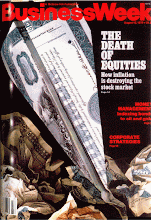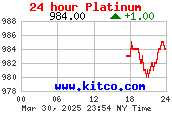中國政府在美國金融危機爆發後,主要的救市措施有:
1. 推出「四萬億」工程、十大產業振興規劃、汽車家電下鄉
2. 銀行放出天量信貸
3. 人民幣匯率停止上升
4. 部份地區放寬執行勞動合同法
5. 出口退稅比例回調
上述救市措施中,第三至第五點是正著,能有效地幫助經濟環境日益惡化的企業,特別是以出口為主的民營企業,減少失業人口。必須強調的是,中國國內製造的產品只有一半是內銷的,另外一半是靠出口外銷的。
上述首兩點救市措施,雖然是被大部份經濟學者肯定的措施,但本人認為有關當局必須注意以下的後遺症:
1. 在金融危機爆發前,國內已經存在很嚴重的產能過剩問題。在金融危機爆發後,中央推出「四萬億」工程為首的救市措施,雖然能夠在短時間內減輕產能過剩問題,但其實並沒有在根本上解決問題。「四萬億」工程、十大產業振興規劃等措施所製造出來的額外產能,只會令將來的產能過剩問題更為嚴重。花四萬億去建什麼公路鐵路,將來工業不成用不著,是浪費的投資。
2. 要成功落實「四萬億」工程,政府必須有足夠的財政能力以支付相關費用。從改革開放開始實施至今,中央政府差不多每年都是赤字經營,增加財政收入的任務只好交予地方政府解決。地方政府為了增加財政收入,配合銀行放出天量信貸,有很大的誘因與地產商共同推高樓價,增加地方政府的賣地收入。由此而來的樓市泡沫必定在可見的將來造成嚴重的社會經濟問題。
3. 銀行放出的天量信貸除了有部份去了樓市外,亦有部份被投入到股市中。許多企業,特別產品以出口為主的民企是,在收到貸款後,發現經營環境並沒有太大改善,加上對未來通貨膨脹的恐懼,只好把部份貸款投入樓市股市中,造成更大的資產泡沫,使通脹提前到來。進一步推論,民企的營運成本必然增加,結果是雪上加霜。
4. 對於「四萬億」財政刺激政策,中國政府是難以作出監管的。這裡試舉出兩個例子。首先在補貼購置機械的撥款中,無良的供應商可與幹部聯手,提供劣質機械,而即使農民獲得的品質好的機械,他們亦可以轉賣出去圖利。另外在補貼灌溉方面,由於補貼數目以每畝算,有很大誘因令民眾報大數。在中國今天的官僚制度下,大部份收益應該去了地方幹部手中,農民實際分得的肯定不多。
5. 在政府推出「四萬億」工程之後,工業區重新出現了民工荒,這其實是擠走(crowding out)現象。「四萬億」工程必定會增加民企的經濟成本,處理不當的話絕對可令大量民企倒閉,而民企的發展正是長遠國家經濟可以持續發展的的途徑。
6. 過去很多經濟學家的研究指出,在經濟不景或蕭條下,推出凱恩斯學派的刺激消費的財政政策(fiscal policy)效果不大。在推出「四萬億」財政刺激政策後,許多有份量的經濟學者對凱恩斯的「乘數效應」(multiplier effect)的估計令人擔心,小於一差不多已是行內的共識。
7. 中央的「四萬億」財政政策一般只增加暫性的收入(transitory income),對重要的固定收入(permanent income)幫助甚微。簡而言之,「四萬億」財政政策是一次性的,在相關工程完成後,對經濟的推動將變為零。
8. 中央的「四萬億」財政政策容易促成大政府的發展,埋沒了市場的運作。
9. 最令人擔心的是,在「四萬億」財政政策完成後,全球經濟仍未回暖,中國的經濟增長將無以為繼。如果屆時通貨膨脹又急升的話,便是滯脹,所有政策都將失效。
中央政府應該如何處理,才能在金融危機爆發後協助中國經濟長久穩定地增長?本人認為關鍵是在民企的發展及貨幣制度上。
民企的健康發展正是長遠國家經濟可以持續發展的的途徑。中國實行改革開放已經超過三十年了,什麼時候才可以不再把大量資源傾斜向沒有「自生能力」(viability)的國企,而讓國企與民企在同一條件下共同競爭,減少經濟浪費?另一方面,如果國家想投入金錢幫助目前處於困境的民企,減稅肯定遠勝直接資助。
在國家的貨幣制度上,本人認為應該以張五常教授建議的一籃子物品的可以在市場成交的物價指數為貨幣之錨。在這個制度下,國家可以把人民幣放出國外,作為東亞地區的貿易及儲備貨幣,並賺取各國的「間接稅」。另一方面,通脹不再成為問題,而中國亦無需再承受歐美各國對人民幣匯率升值的壓力。最後,人民幣真正回歸到貨幣作為計算、交易及儲存單位的功能,大大減少了社會費用。





5 則留言:
條理清晰,深入淺出,感謝聰聰的分享。
因為沒有學過經濟學,想向您請教何謂「擠走現象」?謝謝。 ~Greenleaves上
教科書上指的擠走(crowding out)現象,是政府的擴張性財政政策(expansionary fiscal policy)會造成私人投資及消費減少,理由如下:
1. 貸幣需求增加->利率上升
2. 消費者擔心未來稅率上升->減少消費
上述理由大致適用於歐美發達國家,但不能直接套用到中國,因為大家的經濟結構不同!
在中國,政府的擴張性財政政策(expansionary fiscal policy)造成私人投資及消費減少的理由如下:
1. 工人工資上升->增加民企成本
2. 原材料價格上升->增加民企成本
3. ......
......
Even though the origin and direct huge loss are belong to US, the US are able to recover soon compare with Europe and Asia due to the following issues.
We can think of the following questions first before drip down further.
考考你:
a) 為什麼相比美國散戶,中國散戶對上市公司的業績較不關心,而主要把精神集中於短期的股價波動以作短線投機炒賣?
b) 為什麼美國散戶比中國散戶得到更多保障?
c) 為什麼中國散戶在資本市場的得益這樣少,甚至是「負得益」?
Some of the reasons are as follows
1) Regulation factor
The legal punishments for violations are severe including lengthy imprisonment and large sum of fine, which could easily make even millionaires goes to bankrupt (e.g. insider dealing, meltdown of Chinese Walls, accounting standard intentional violations, Ponzi schemes). Besides, the execution of legal enforcements is efficient due to media broadcast and regulation transparency, once a person is charged for the punishments, he virtually cannot escape from the legal system. The most important is that the regulatory authority such as US SEC charges suspect via totally different legal perspectives than rest of the other general US laws that suspect needs to prove himself not violating the laws, otherwise he will be punished. It is far more difficult to prove what you did not do than what you do. For example, the case of Mr. Lee Guo Bo, President of HK BEA.
2) Accounting factor
The accounting standards and notes disclosure requirement in the US GAAP (set by FASB) are far more stringent than PRC GAAP. The more broaden and more depth financial information disclosure reduces significantly the asymmetric information issue, which promote corporate transparency and market efficiency. In additions, the US Listing Rules require listed companies to provide audited reports quarterly at least.
3) Institutional investor factor
There is large number of institutional investors such as pension funds, private equity funds, hedge funds, and insurance companies to make huge sums of investments in many large cap companies in US such as DJIA composites. You can think of TPG and AIA, as they are not usually heavily involved in day-to-day business running, they are very dependent on the management performance and auditors reporting. Hence, they are in huge demand to urge management to disclose financials publicly. While many of the large corporate are State Owned Enterprise (SOE) or controlled by large families, they involved daily financial and operational decision making and therefore they do not have such huge disclosure demand than that in US side.
4) Corporate ethics factor
Corporate governance in US is generally better than that in PRC. Apart from the leverage of the severe legal punishment, and bargaining power of institutional investors, it is largely due to cultural ethics, Christian religions and corporate citizenships.
5) Media factor
The US media contributes much in financial market regulations. Professional news reporters (e.g. CNN, Wall Streets Journals) provides the latest financial updates in depth professionally, and financial information providers (e.g. Bloomberg and Reuters) provides many value added financial analysis and decision https://www.blogger.com/comment.domaking services for investors. They also help much to uncover many dirty deals and illegal acts in US markets.
6) Price discovery factor
The market structure of US allows investors to make short positions besides normal hedging activities such as FX hedges and interest rate hedge. The market price equilibrium is able to be reached by the bullish force and bearish force in the market. However, short position is either not allowed or not easy to make in PRC markets. Besides, the US corporate investors like i-banks and hedge funds are heavily depends on their fundamental analysis to support their investment decision. Their fundamental analysis is advanced and substantially utilized modern financial theories like Portfolio Theory, Black Scholes Models, Monte Carlo Simulations, Complex DCF Models, and Industry Experts opinions. These works help much in price discovery of the fundamental value/intrinsic value of the investments. It helps to minimize financial bubbles formation and smoother the economic cycle in US.
These factors altogether have the following impacts
- Increase market efficiency and reduce information asymmetry
- Reduce agency problem between corporate management and shareholders
- Increase investors’ confidence in investments
- Increase investors’ protection in investments
- Investors are more willing to make long term investments and are more willing to drip down the financial information of their invested companies.
- Costs saved from these factors (e.g. auditing costs, legal punishment costs, cost of capitals WACC) turns out to increase the economic benefits (e.g. EVA, Economic income, Residual income)
個人認為
〔the US are able to recover soon compare with Europe and Asia〕
的主要原因是:
1. 美元本位
2. 金融資本控制原材料定價權
3. 産業資本控制銷售定價權
4. 國「窮」但民仍「富」
(試比較民眾的「實際」購買力!)
還有一點非常重要的是:
尊重「自由市場」原則,較為「防左」,減少經濟及社會浪費!
提示:
比較新中國成立後,首三十年及後三十年的發展。
「趕超戰略」是好是壞?
中國會否減慢由「計劃經濟」過渡向「市場經濟」的步伐,甚至走回頭路?
發佈留言